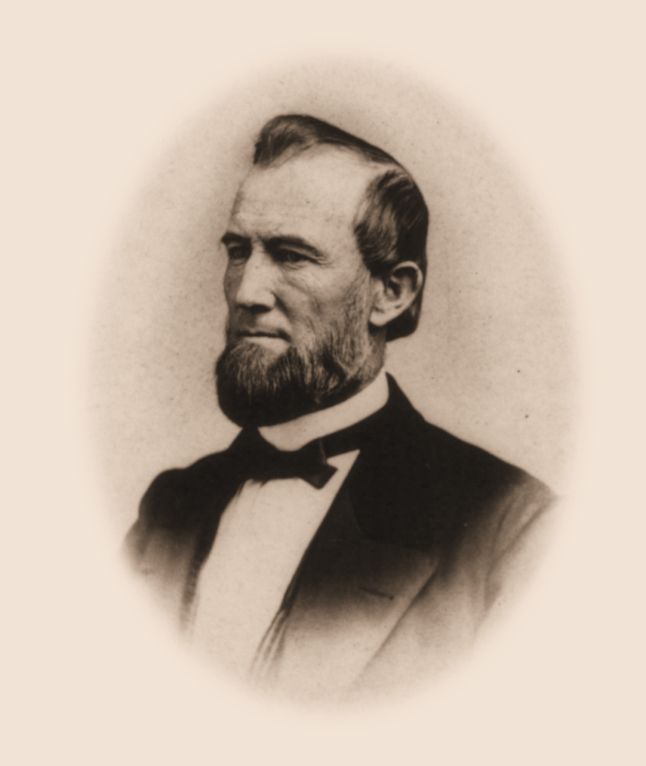 Captain James Buchanan Eads (May 23, 1820 – March 8, 1887) was a world-renowned American civil engineer and inventor, holding more than 50 patents.
Captain James Buchanan Eads (May 23, 1820 – March 8, 1887) was a world-renowned American civil engineer and inventor, holding more than 50 patents.
In 1861, after the outbreak of the American Civil War, Eads was called to Washington at the prompting of his friend, Attorney General Edward Bates, to consult on the defense of the Mississippi River. Soon afterward, he was contracted to construct the City-class ironclads for the United States Navy, and produced seven such ships within five months: St. Louis, Cairo, Carondelet, Cincinnati, Louisville, Mound City, and Pittsburgh. He also converted the river steamer New Era into the ironclad Essex. The river ironclads were a vital element in the highly successful Federal offensive into Tennessee, Kentucky and upper Mississippi (February–June, 1862). Eads corresponded frequently with Navy officers of the Western Flotilla, and used their “combat lessons learned” to improve vessels during post-combat repairs, and incorporate improvements into succeeding generations of gunboats. By the end of the war he would build more than 30 river ironclads.
The last were so hardy that the Navy sent them into service in the Gulf of Mexico, where they supported the successful Federal attack on the Confederate port city of Mobile. All senior officers in the Western Theater, including Grant and Sherman, agreed that Eads and his vessels had been vital to early victory in the West. The first four gunboats were built at the Eads’ Union Marine Works in Carondelet, Missouri. The next three were built under Eads’ contract at the Mound City (Illinois) Marine Railway and Shipyard. Eads’ vessels were the first United States ironclads to enter combat. On January 11, 1862 the Eads-built ironclads St. Louis and Essex fought the Confederate gunboats CSS General Polk, CSS Ivy, and CSS Jackson at Lucas Bend, on the Mississippi River. Subsequently, on February 6, 1862, Eads’ ironclads captured Fort Henry on the Tennessee River. This was over a month before the combat actions of the ironclads CSS Virginia and USS Monitor during the March 8–9, 1862 Battle of Hampton Roads.
During the war, Eads wrote a check to the War Department for $1,000 to help homeless Confederates and Union sympathizers. After the war, he held a fair to raise money for the thousands of homeless refugees in St. Louis.